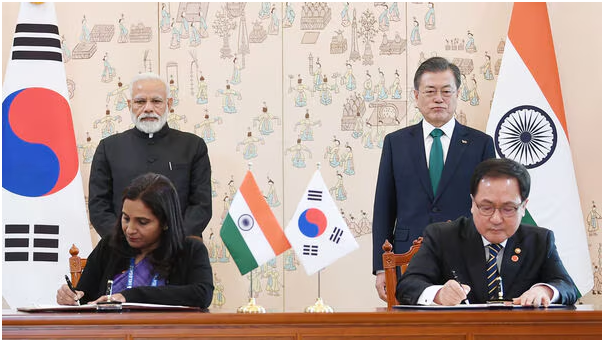
South Korea and India signed the CEPA in Seoul in 2009
to increase economic exchange and facilitate trade between the countries.
The agreement, negotiated over 12 rounds and for over
three years, came into effect from 2010. However, India’s imports from South
Korea have eclipsed exports to the country.
“The government has raised concerns about the
growing trade deficit between India and the Republic of Korea,” the first person mentioned above said. “The upcoming negotiations
will address some of the issues,” the person added.
The analysis of India’s three key Free Trade Agreements (FTAs)
with ASEAN,
South Korea, and Japan, signed in 2010-2011, reveals India’s merchandise trade
deficit with these partners increased significantly more than its global trade
deficit, and India’s exports to these
FTA partners have increased at a lower rate than its imports, economic think
tank Global Trade Research Initiative (GTRI) said in a recent report.
“Many Indian firms choose not to use the FTA route
when (Korean) duties are low, as FTA-related compliance costs do not justify
the tariff benefits,” the report said.